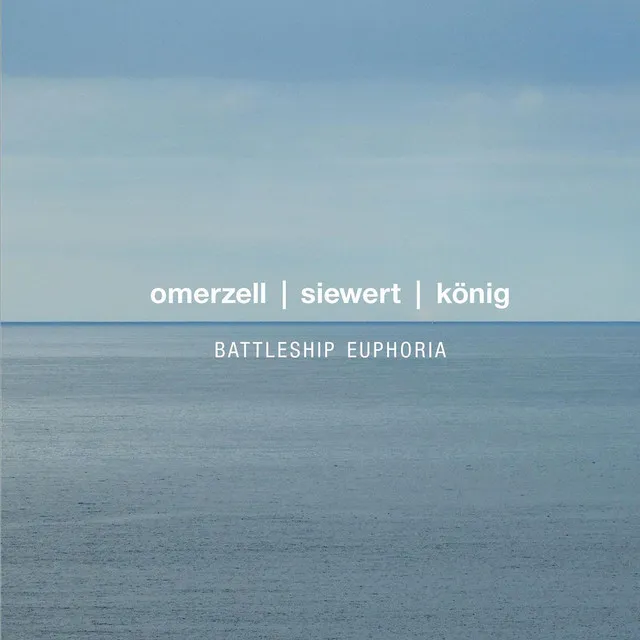
Omersall, Kong & Sievaerd
Battleship Euphoria
- 31.03.2017
- 0 Streams
- 5 min 55 sec

Guitarist Martin Siewert is from the same generation of Viennese experimentalists as Boris Hauf, Dieter Kovacic (Dieb 13), and Franz Hautzinger. Since 1998 he has been working on ways to abstract the sound of the electric guitar, to strip it from its rock-related references by using outdated analog technology. His approach also reveals a constant interest in reductionism, as can be heard in his contributions to the groups Efzeg and SSSD. He has played with Hauf, Oskar Aichinger, Christian Fennesz, Werner Dafeldecker, and Comforts of Madness among others. His first solo project Komfort 2000 was released in 2000. Siewert (born 1972) is of German extraction, but lives in Vienna, Austria since he is 10 years old. He began to play guitar publicly circa 1995, first with Herwig Grodischnig, Freier Fall, Hautzinger (before his transformation into a post-minimalist quarter-tone trumpeter), and with his own group Duckbilled Platypus, started in 1995. The latter released two albums in 1997 and 1998 on the avant-garde jazz label Extraplatte. But at that point, like many other Viennese musicians (Hauf, Hautzinger, Dafeldecker, Hilge Hinteregger to name a few), he grew dissatisfied with the jazz crowd and began reinventing his language as the newly incepted labels Durian (by Dafeldecker) and Charhizma (by Christof Kurzmann) stimulated new forms of expressions attuned to the latest experiments in London and Berlin. He appeared as a guest on the 1999 electro-acoustic improv summit CD Dafeldecker Kurzmann Fennesz O'Rourke Drumm Siewert, got involved in Efzeg in October 1999 and completed his Komfort 2000 shortly after. The latter, a slow-developing structured improvisation, featured Dafeldecker, Hinteregger, Wayne Horvitz, and Tony Buck. His latest involvements include the groups Trapist (with Joe Williamson and Martin Brandlmayr), My Kingdom for a Lullaby (with Kurzmann, Axel Dörner, and Efzeg's video artist Billy Roisz), and the influential mellow abstract guitar quartet SSSD, whose first album Home came out on Grob at the same time as Efzeg's second opus Boogie, giving Siewert's somewhat understated profile a push.